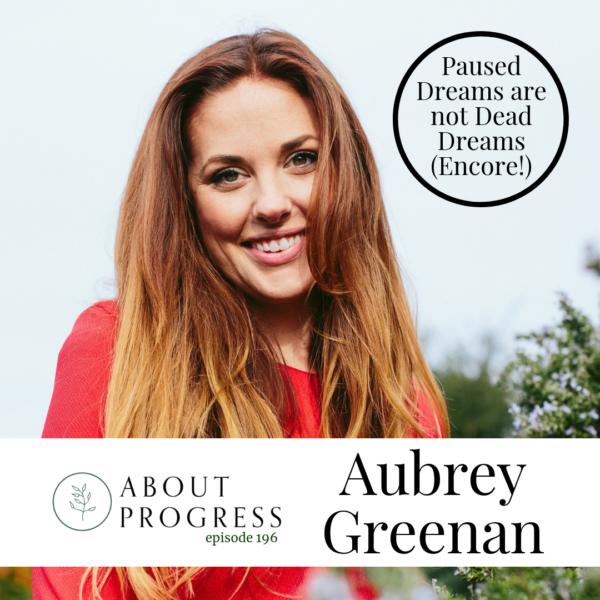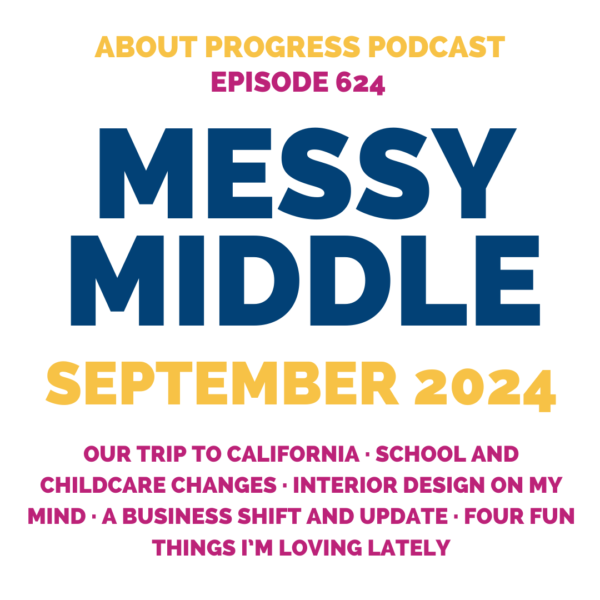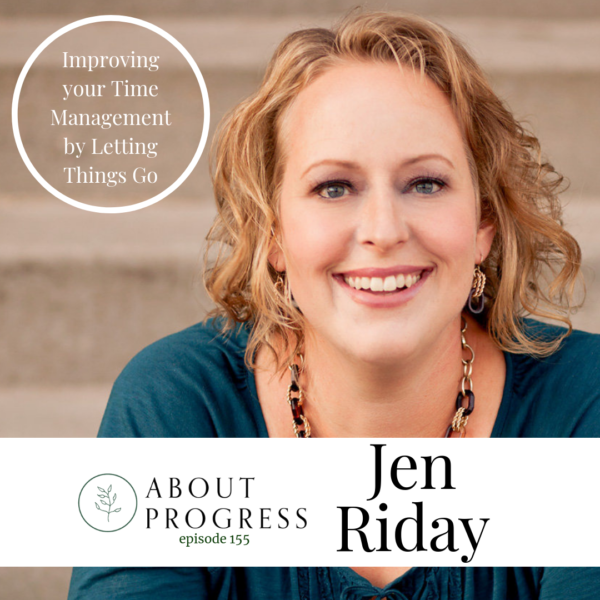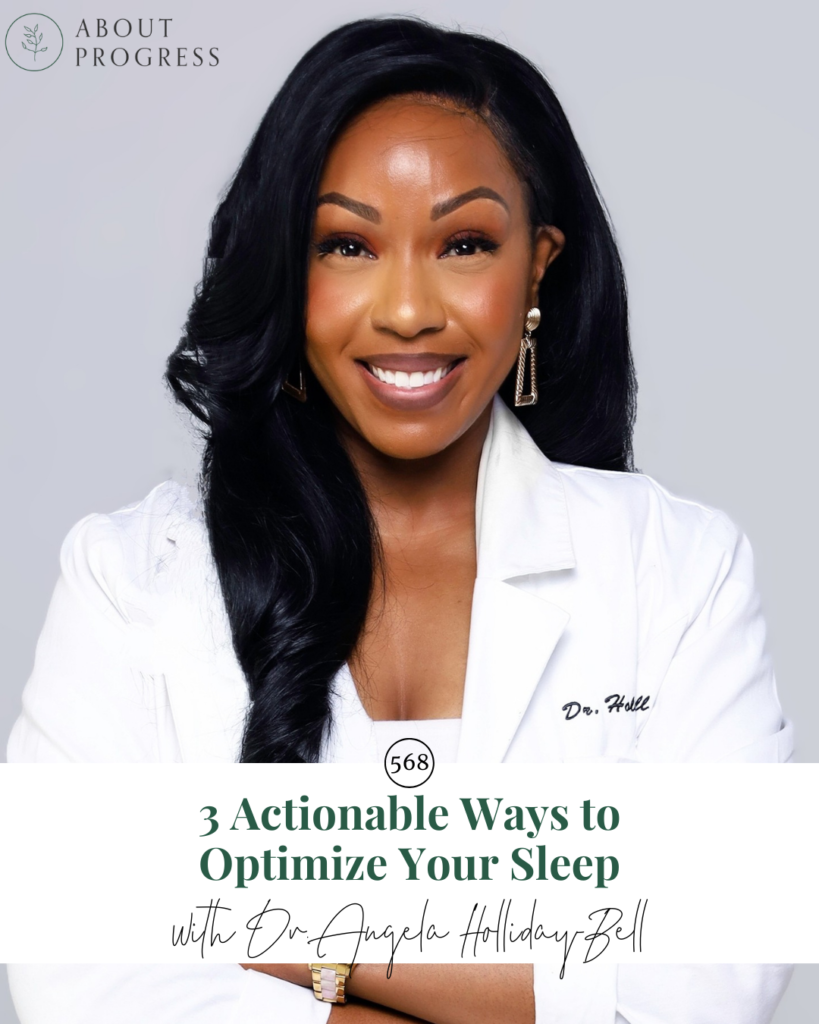
Today, we have Dr. Angela Holliday-Bell, physician and certified sleep specialist, on the show. We dive deep into the importance of sleep and how it can transform your life. Dr. Holliday-Bell shares her personal journey with insomnia and how it led her to become a sleep specialist. We discuss common mistakes people make regarding light exposure, bedtime routines, and the mindset shift needed to prioritize sleep.
Dr. Bell emphasizes the power of small changes in your bedtime routine and encourages everyone to start with three things they can do consistently. If you’re ready to take control of your life, and your overall health, through sleep, this episode is for you.
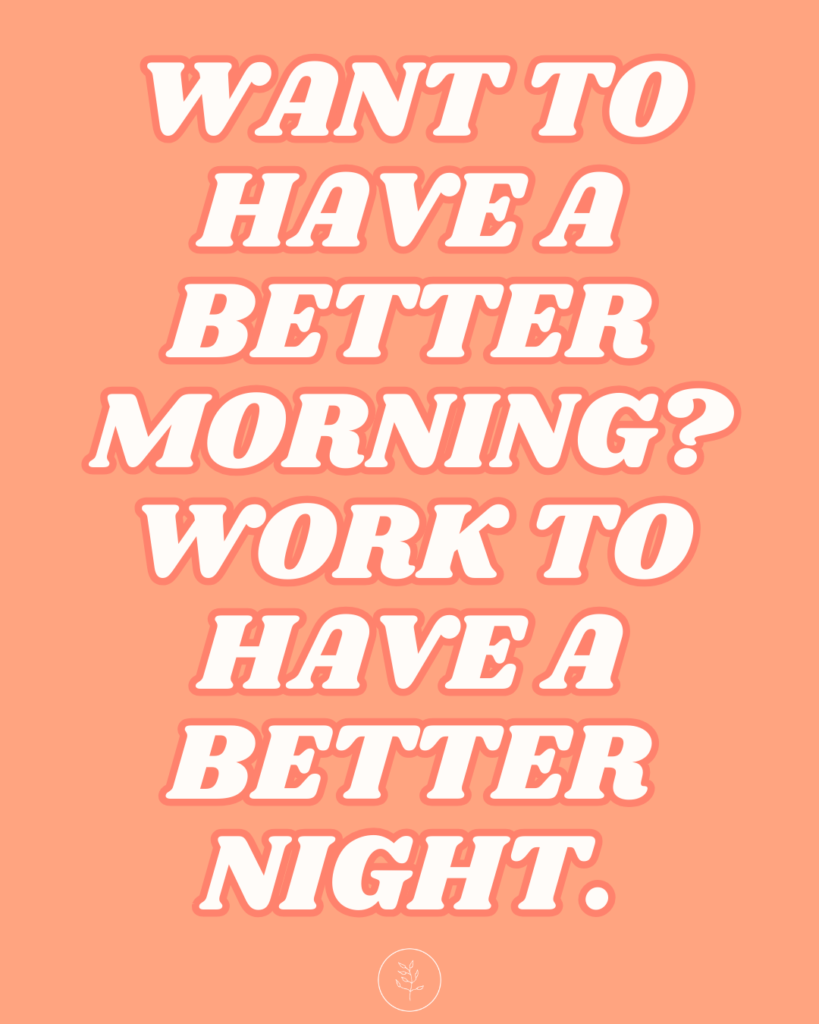
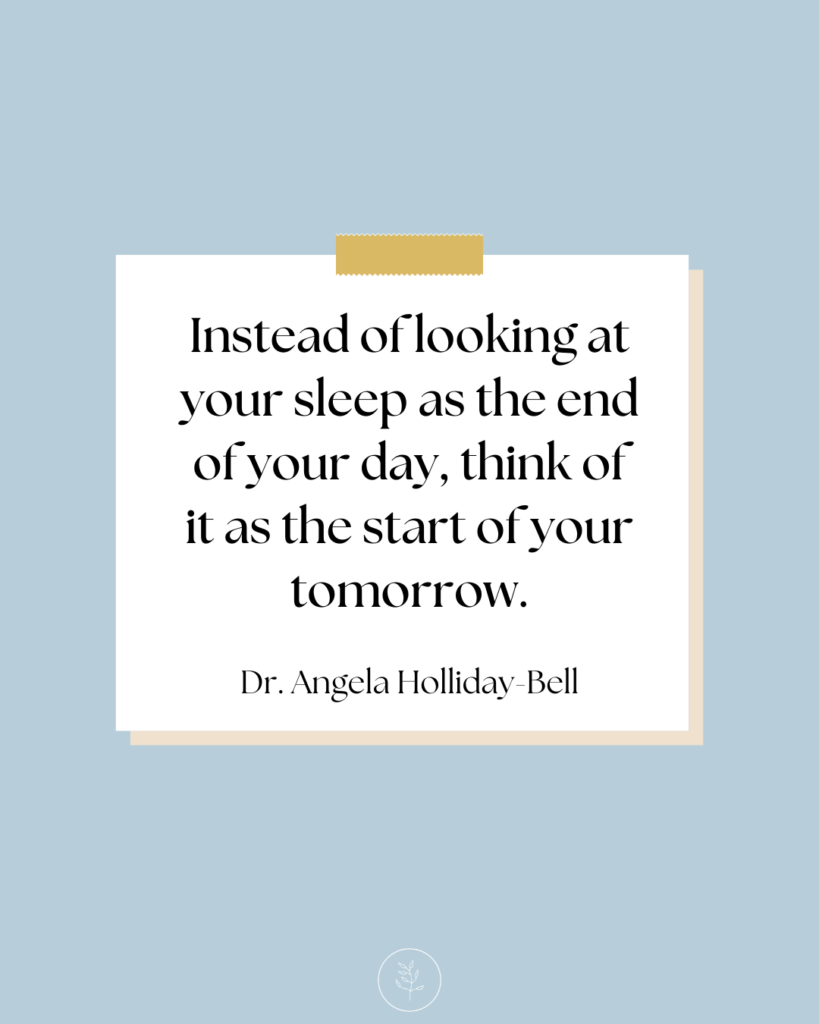
About a few other things…
Do you struggle to create habits that stick? It’s not your fault. The truth is simple: you’ve been trying to form habits using methods designed for perfect robots–not real women living real lives. It’s time to change that. If I could help you gain confidence in creating habits AND guide you to uncover the ONE supportive habit to deeply care for yourself, could you commit 21 days to learning this method? The Sticky Habit Method is a 21-day course that revolutionizes the habit-formation process. It’s real habits for real women.
Sign up for the Go Getter Newsletter to get Progress Pointers in your inbox every Tuesday.
Control Body Odor ANYWHERE with @lumedeodorant and get $5 off off your Starter Pack (that’s over 40% off) with promo code ABOUTPROGRESS at LumeDeodorant.com! #lumepod
You can listen the episode below, or on Apple Podcasts/iTunes, Spotify, Youtube, Overcast, Stitcher, Pocketcasts, or search for “About Progress” wherever you get your podcasts. If you like the show please share it, subscribe, and leave a review!!
SHOW NOTES
Dr. Holliday-Bell’s Website, Instagram, Book
Access exclusive supporter benefits
Sign up for the next Sticky Habit Intensive
Leave a rating and review for the podcast!
Lend your voice and experience + be featured on the show HERE
Join Monica on Facebook and Instagram
Songs Credit: Pleasant Pictures Music Club
TRANSCRIPT
Monica: Dr. Angela Holliday-Bell. Welcome to about progress.
Dr. Angela Holliday-Bell: Thank you so much for having me. I’m so excited to be on the show. Really anytime I can talk about sleep, I’m all for it. So I’m excited.
Monica: I don’t think I’ve said yes faster to a pitch to be on the show, truly. And I have to tell you, this has been a lifelong issue for me.
Sleep, in general. I’m so proud of how far I’ve come, but I know I’m still making lots of mistakes. A lot. And I’ve learned so much from you already and what you do and share. on Instagram. Yeah, so awesome. So I just want to start by hearing why you care about sleep. Like, why has this become such a big part of your life?
Dr. Angela Holliday-Bell: Yeah. Yeah. No, that’s a great question. So I am a physician. I’m a board certified physician by training. And really I like to say I’m someone who has always had a deep, loving relationship with sleep. I’m always that person who needed more sleep than everyone else. Like during my teenage years, my friends knew don’t call me before like 1 p. m. because you’re probably not going to get me that kind of person. But as I went through our medical training specifically medical school and in residency, I started to suffer from insomnia. And it started with me not having enough time to sleep right. So I was always working, always studying, but then it became, even when I had time on days off, I could not sleep.
And honestly, of all the things I’ve been through, that’s probably the most frustrating feeling in the world is wanting so desperately to sleep and not being able to. And so it was my own question, like, okay, I have to fix this. Like, I can’t exist like this. I was very much so a worse version of myself because of it.
And so I started reading every single book there was on sleep. I started volunteering in the sleep clinic in my hospital. And then really fell in love with sleep and started to understand that, Oh, it’s more than just feeling rested. Like sleep is really the key to functioning optimally. And as I started to put the practices into place that I was learning and.
You know, feeling better, looking better, being better because of it. I was like, Oh, this is, there’s something to this. And I need to help other people as well. Friends, family, patients, everyone was struggling with sleep issues. So I knew it was much bigger. But that was how I kind of fell in love with it.
Monica: You’ve already shared a few hints here on why sleep matters. And I just think it’s important for us to spend some more time on that because we are competing against maybe, I don’t know, I was gonna say hundreds of years of culture, but I’m thinking more American culture but I’m sure this exists worldwide,
In many areas that it’s just like the emphasis of hard work entails little sleep and you’re weak if you need more sleep or something’s wrong with you.
Dr. Angela Holliday-Bell: Yeah. You’re
Monica: lazy. So what can we say to push against those, like, it’s almost in our blood issues that we have about, even knowing that it’s okay to prioritize sleep. Why does sleep matter?
Dr. Angela Holliday-Bell: Yeah, absolutely. So, you know, when people ask me and I get this question all the time, like, what, what’s affected?
What really is affected if you’re not getting enough sleep? And I’m like, it’s easier to say what’s not affected than what is, because sleep is so essential and is at the core of your Health and well being both mentally and physically, just naming off a few things. If you’re not getting enough sleep, and there’s so much research to support this, so it’s not just me saying this, your risk of things like weight gain and obesity significantly increased.
So in a state of sleep deprivation, the hormone that causes you to be hungry, ghrelin, is actually released in higher quantities, while the hormone that signals that you’re full, leptin, is released in lower quantities.
There’s a dysregulation of your blood sugar, so your body actually becomes less sensitive to insulin when you’re not getting enough sleep, increasing your risk of type 2 diabetes. Your body goes into a state of fight or flight, so everyone knows that like if you see a bear in the woods and your cortisol stress hormone and adrenaline increase, that happens all the time at a consistent level when you’re not getting enough sleep, which causes a widespread inflammation throughout your body.
Weakens your blood vessels, puts more strain on your heart, leading to high blood pressure, cardiovascular disease. Your risk of mental health conditions like anxiety and depression increase two to five times in the state of sleep deprivation. In addition, things like getting sick, right? So right now in the world where all the viruses are flipping around all the time, one of your best defenses against that is sleep.
Studies have shown, actually, like literally tracked people’s sleep before rhinovirus and found that those who slept less than seven hours on average in two weeks leading up to the rhinovirus exposure, we’re three times as likely to develop symptoms of the virus. And then if that’s not enough, everybody Sleep makes you look young, right?
It’s life’s fountain of youth. When you’re not getting enough sleep, you have more wrinkles, sagging skin when you’ve probably encountered people that are like, whoa, you’re like, you did not get enough sleep last night, right? Like it shows on our face and there’s a reason for that. So literally, you can name anything, your productivity, efficiency, mood, all of those things are impacted by your sleep.
So it’s like, there’s no, All of the laziness and the, you know, I’ll sleep when I die, you will actually function so much better no matter what you’re doing in life, if you’ve given yourself a good night’s sleep.
Monica: So why does our body need sleep? I was thinking about this the other day. I’m like, is it like a third of our lives that we’re actually supposed to be sleeping?
That’s a lot of time. Why does my body need that?
Dr. Angela Holliday-Bell: Yeah. So if you think about what happens during the day, there’s so much energy. It’s so taxing on our bodies and our minds, and we need time to restore that. And the only way you can do that is while you’re sleeping, where we’re shutting off non essential activities so that our brain can be washed away of toxins that accumulate literally throughout the day.
We have an increase in the amount of spinal fluid. Literal toxins. So to this point, there’s actually been a connection between insufficient sleep and Alzheimer’s disease. And there are not to get too scientific, specific things that aggregate or accumulate in the brain that happens somewhat naturally, but our body restores and replenishes itself and washes those things away at night.
So if you’re giving yourself less time to do that, it’s just more time for those things to build up. So literally the cerebral. Spinal fluid, the fluid that covers your brain and your spinal cord. Increases of production at night to wash away all of those things, your DNA repairs itself at night. So all of the damage we get from the sun and other things we do, the restoration and the repair of that happens at night.
It’s, difficult. For all of those things to happen when there are so many other functions going on throughout. The day and so many other things that our energy has to be placed to. So at night is when everything else can kind of shut down and our bodies and minds can get to work. Our emotional control center communicates with our emotional regulatory center, giving us better control of our emotions during the day, which is why you’re more testy and on edge after a night of poor sleep, right?
So there are just so many essential functions that happen that don’t have the opportunity to take place during the day because all of our energy is diverted to other things. So that is why for a third of our day you know, that’s included in the night, we really need to shut down those processes and allow our bodies to get to work restoring and repairing itself.
Monica: I really appreciate that background. I’m one of those people, just tell me because then I’ll get it. Like every time I’ve gone into birth, I’m like, tell me everything. Like what can I, like what’s actually happening? What can I expect? And it’s the same with sleep. When I can understand it better, more cerebrally than I can practice it out better.
Before we dig into some more tips here, how much sleep should we be getting?
Dr. Angela Holliday-Bell: It’s a great question. And it’s again, probably the second most common question, I guess. How much sleep should I be getting? And my answer is, it depends. And the reason for that is there is no one size fits all. So my favorite thing to say is sleep need is like shoe size.
There’s no one size fits all. There’s an average, right? So most people I’ve heard as adults, you should be getting seven to eight hours of sleep. A night. That is true on average. But the range is actually somewhere between six to ten hours. I’m a nine hour girl personally. If I get seven hours of sleep, I’m still very tired in the morning.
That is not enough. Eight hours, I’m better, but not optimal. So it really is important to determine what your individual sleep need is, and that’s going to look a little different for everybody. But it’s the amount of hours of sleep you need to wake up feeling fully rested, refreshed throughout the day with enough energy to perform your daily activities.
Without requiring energy or alertness boosters, such as caffeine mouthful, but you need to be able to function optimally just off of sleep alone.
Monica: So if someone is do they still have a slump in the afternoon? Is that just part of like our circadian rhythm? That’s the thing I’ve been curious about. It’s like, I think I’m sleeping a little better, but I’m still really tired.
Dr. Angela Holliday-Bell: Yeah. So that is a part of our normal circadian rhythm. So your circadian rhythm is that roughly 24 hour cycle that dictates when you feel alert and sleeping throughout the day. There are things you can do to kind of set that and reinforce that in a way that works better for your sleep and wake cycles or when you have to get up and go to sleep. However, for most of us, it looks like increasing alertness throughout the early morning hours.
We hit a peak. There’s that post lunch dip. learning starts to go back up. We hit another peak in the evening and then it comes back down. Everyone’s going to be a little bit different in terms of what time those actual peaks and dips occur, but most people will have that post lunch dip simply because of our circadian rhythms.
Monica: Okay.
So it’s not necessarily reflective that you need more sleep, but it also could be depending on how intense it is and long lasting.
Dr. Angela Holliday-Bell: Exactly. Because it’s going to be more It’s going to be a more extreme dip if you’re already sleep deprived because now the alerting signals from your circadian rhythm are lower.
So there’s less keeping you awake. And if you’re already have a sleep debt, it’s going to be more pressure to sleep. As opposed to if you are well rested, you may feel a little bit more tired, but it shouldn’t be like, I can’t keep my eyes open. I can’t stay up. I need five cups of coffee. That may be a sign that you’re really not getting enough sleep.
Monica: And I only just recently learned about caffeine and that it’s not that it gives you more energy, it’s that it blocks the, is it like the hormones or the chemicals that tell you’re tired? Is that what’s happening?
Dr. Angela Holliday-Bell: Yes, exactly. So when you wake up, so we talked about the circadian rhythm and the other big thing that That is governing your sleep is your sleep drive.
So that is simply as soon as you wake up, your drive to sleep is building and building until you go back to sleeping and sleep it off. But that drive really comes down to a molecule called adenosine that builds up in your brain. So adenosine builds up and builds up and tells your brain that it’s time to sleep.
Once it hits a certain peak, it should overcome your alertness. You fall asleep and then at night all the adenosine is washed away and you start again. Caffeine blocks adenosine receptors. This is also important, and I love this because, you know, I’m a doctor, I’m a science girl, so I do geek out, you know, from all of this.
But, it’s not that caffeine gets rid of the adenosine, and this is important for caffeine drinkers to know. It blocks the receptors that adenosine binds to. Which means once caffeine goes away, all that adenosine is still there, which is why people often have that crash afterwards because the adenosine didn’t go anywhere, it just couldn’t do what it was supposed to do because it can’t bind to the receptors, now the caffeine is gone, now you have this rush of sleepiness again.
Which is why, you know, first of all, I’m a caffeine lover, I love coffee in general, however you do have to use it wisely and not depend on that to be alert because it doesn’t come with some other effects.
Monica: So it’s less about removal. It’s more about dependence that they need to just be aware of.
Okay.
Dr. Angela Holliday-Bell: Exactly. Exactly.
Monica: So, you know, I told you I’ve been making a lot of progress on this over the last few years. It started for me with vanity. Just realize the difference in the yearly family photos of my own face. And it’s continuing now because I had my fifth kid this year and I have been in that Chinese water torture of, of sleep which is a big blessing and it’s all good, you know, it’s just part of it, but I am wanting to fine tune this. And I would like to be more aware of the mistakes I’m likely making still, or the mistakes that we’re all kind of making that we might just want to be more aware of about sleep in general and how we can improve those mistakes.
So can you tell us what mistakes they should be aware of me included?
Dr. Angela Holliday-Bell: Yeah, absolutely. So first of all, good for you. I love you know, it’s all about progress, not perfection, right? Just taking the next steps to do better with what you’re doing. So I would say probably the biggest mistake that I see people making it falls into this bigger group of mistakes and understanding that light is the strongest factor influencing your circadian rhythm.
Right? And you can utilize that in a way that’s beneficial and helpful for sleep, or you can allow it to interfere with their sleep. So that means one of a couple of things. As you near your bedtime, most people have heard that you should avoid blue light and electronics. And that’s true, because the blue wavelength of light in particular has the strongest effect on your circadian rhythm.
And that effect is delaying your melatonin release, telling your body it’s time to be awake and alert and making it more difficult to fall asleep. Your electronics are very rich in that blue light. So yes, you should definitely try to avoid those within an hour to a bedtime where I see a lot of people go wrong though.
They may say, yeah, I put my phone away an hour before bed and I still have trouble falling asleep. They don’t realize that just normal overhead room light, just like literally the lights in your room also emit blue light and other wavelengths. of light that can impact your sleep. There have been studies done that split groups into just normal room lighting or dim lighting before bed and found that those who existed in just typical lights had a delay in their melatonin release by up to 90 minutes.
So even if it’s not the electronics you’re still telling sending signals to your brain that nope it’s time to be awake and alert and it’s more difficult to fall asleep. The flip side of that is Getting natural light exposure within an hour of waking is also very powerful in training your circadian rhythm.
So when I talk to people about sleep and fixing their sleep, everyone, you know, kind of relegates it to this hour or so before bedtime and then what they do overnight and that’s it. But again your circadian rhythm is a roughly 24 hour process. So what you do for good sleep. It’s what you do all throughout the day.
So if you expose yourself to natural light within an hour of waking, you shut off that melatonin release, which is good, because you want it off at that point. You reinforce your circadian rhythm to send those alerting factors at that same time each morning, and you help your melatonin release at night.
So I would say utilizing light, which is so powerful, in a way that helps your awareness in the morning, but also helps your sleep at night.
Monica: Okay so when we, I talk a lot about habits with women and they often want to work on a morning routine and we always say morning, start the night before. So you got to like, let’s work on your night routine.
I love the reverse of this. Like nights start the morning before too. So what are you doing to help, you know, stimulate the right, I’m already lost the language because I’m not a science person.
What’s the word?
Dr. Angela Holliday-Bell: Yeah, but you have the idea to reinforce and entrain your circadian rhythm. What are you doing to make that happen?
And getting that light exposure within an hour, because that’s when you’re going to be the most sensitive to it, is a great way to do it. And then, so I’m in Chicago, and you know, these days we don’t always have light. It’s first thing in the morning when I have to wake up. And so I will hear that from like, you know, for some people it’s a couple hours into their morning before they start to see light.
So there are actually light therapy boxes and light therapy glasses that you can use to simulate natural light to still give you that exposure. And really help to keep your circadian rhythm in check.
Monica: Hey, that’s super smart. I didn’t even think of that. I know that’s really valuable for those who suffer with seasonal depression.
But I didn’t know you could use that for sleep.
Dr. Angela Holliday-Bell: Yes. And a lot of seasonal depression goes hand in hand with sleep issues and circadian rhythm disruptions. So there’s a lot of bidirectionality between those two. But yes, we use it for the same thing for the seasonal affective disorder as well as in in training your circadian rhythm in certain sleep disorders.
And we are not getting natural light exposure during the winter months.
Monica: So is it bad that first thing in the morning, I come up right outside my little office here. I’ve got my little cycling machine. My words are gone today. Who knows what’s going on, but is it bad that I like turn on my artificial lights or is that enough to get started?
And then I can go out on a walk with my kids and I’m taking them to school and that’s like, okay.
Dr. Angela Holliday-Bell: Yeah, definitely not bad by any means. So for sure. First of all, I love that you’re getting to physical activity first thing in the morning. That’s also another way to promote deeper, better quality sleep. Turning on lights is great.
If you can even just get by a window where there’s some natural light coming in, that’s even better. So the best thing is like, get outside, you know, get that natural light directly to your retinas if you can. Of course, that’s not feasible for everyone, but at least getting by a window, allowing that natural light to hit you that way will be perfect.
And doubling it with physical activity is great.
Monica: Oh, awesome.
Okay. So we’ve talked about light. What’s the next thing they should be aware
of?
Dr. Angela Holliday-Bell: Yeah. Bedtime routines. So I love a good bedtime routine and I think it’s one of the most underrated elements of good sleep. And I say that because as adults who have children, most of us understand The importance of a bedtime routine for your kids.
Oh yeah, we’re gonna, you know, take a bath, read a book, brush our teeth. And why? Because that helps them to settle down and transition from the play and activity of the day to now it’s time for nighttime. We as adults need that same thing and we often don’t give ourselves that. We go throughout the day busy, running around like crazy, doing all these things, and then we think that just because we turn the lights off and get in the bed, we just fall asleep.
But our body really needs that anchor and that transition time to slow down those brain waves and relax and fall asleep, and the bedtime routine is a In addition, it has actually been shown to be protective against stress. So I bring up a lot of studies when I’m talking because one, I love it and I research it all the time, but as you mentioned, I want people to understand why I recommend what I recommend and what we say and not just like, you know, just do this because it’s better for sleep.
There was a study that was done on two different groups of individuals, one who already routinely followed a consistent bedtime routine and one who didn’t. During the study, they were exposed to a purposefully stressful video before bed. So right before bed, same video and found that those who routinely followed a consistent bedtime routine had less sleep disruption than those who didn’t.
And so if you translate that into real life, we all are going to encounter some stressful moments throughout our lives. And in some of those things we can’t help, but if we can build up resilience against that, we can really help to bolster our sleep and the bedtime routine is a great way to do that.
Doesn’t have to be complicated. I also think as women and moms and things like that. We often don’t have time for ourselves, right? Like, where’s our me time? Where’s my time to decompress? Again, bedtime routine is a great way to do that. So your skincare routine, low lights, music, read your favorite book, do a sleep meditation, fall asleep, perfect.
Monica: Well, this is actually making me curious about what your bedtime routine is. Did you just share it? Is that or what?
Dr. Angela Holliday-Bell: Yeah, it’s similar to that. So typically, so about an hour before bed, my routine is about an hour long. All of the lights are low. So I have dimmers at my house. But you don’t have to have dimmers.
You can use like night side, you know, table lamps, whatever, but keep the lights very low. Yes. I turn on my favorite nighttime music playlist. I do my little skincare routine. I read whatever book I’m reading at the time. It just depends. And then I’ll do a devotional at night, and then I go to sleep.
If it is a particularly stressful season, or there’s something more stressful going on, I do have sleep meditations that I listen to. And I just have like a few go to’s that I turn on that my brain is already connected to sleep, and it really helps to ease my anxiety and help me to fall asleep.
But yeah, that’s true.
Monica: Thanks for sharing that. I mean, that feels like a really personal question, but I appreciate that you would share it with us.
Dr. Angela Holliday-Bell: Of course, I don’t mind sharing it. I want people to understand, number one, I’m someone who practices what I preach a hundred thousand percent because I’ve been there.
This isn’t coming from just studying. This is like my own personal experience struggling with insomnia and something I never want to go back to. But I feel like I, you know, I should practice what I preach and I like to. Show other people that it doesn’t have to be complicated. This is what I do. I do it every night.
It also helps, I travel a lot, so it helps when I’m traveling to kind of have this sense of like routine and something that I already connect to sleep better then. So yeah, I definitely don’t mind sharing.
Monica: Well, thank you. I know there’s a lot more we could talk about, but what’s one other final big area that they need to be aware of?
Dr. Angela Holliday-Bell: So this is, it’s not necessarily a specific area. It’s more of a mindset. And I think mindset is so important. When you talk about anything, but especially when it comes to sleep, just choosing to prioritize sleep will actually do work wonders in terms of sleep more than any specific thing.
And the reason that I say that is, you know, Like I said, people will treat sleep as like, okay, whatever time I have left over after a day full of work and other sensibilities, okay, I’m going to give that to sleep and if you start your day with sleep in mind, or actually what I’ve heard recently is instead of thinking of sleep as the ending of your day, think of it as the beginning of your tomorrow, right?
And how do I set myself up for a good day tomorrow? How do I invest in who I will be tomorrow and start your day and your full 24 hours of sleep in mind? It will work wonders because you’re already investing in what you want to experience at night. And then also understand that you deserve to sleep.
You don’t have to earn sleep. It’s not something that you get if you work hard enough. Now, this is your reward by virtue of existing. You you deserve to sleep. One of my bet, my favorite quotes is instead of asking myself, have I worked hard enough to deserve to rest? I’ve started asking, have I rested enough to do my best work?
And if you look at it that way, I think you’ll really understand just how important buying sleep is for you.
Monica: I think you almost saw me like tear off my headphones here. Just like clap. Cause that does change so much for me just to even realize this matters. And in so many ways, we’ve been putting the cart before the horse here.
Exactly. I didn’t even realize how much I’m still
doing that.
Dr. Angela Holliday-Bell: Yep. And once you create that shift, it’s like, Oh. Okay, yeah, things open up and it’s just something I try to get everyone to understand. You deserve it. And so treat yourself to that, become the best version of you through sleep, and then everything else will actually be so much better.
Monica: So I’m actually curious, how is your insomnia?
Dr. Angela Holliday-Bell: Oh, it’s better. Yeah. Yeah. I don’t suffer from insomnia anymore. What I also, it’s so funny because I’m a sleep specialist, people assume that my sleep is just easy. I’m like, Oh, of course you can sleep. Like, no, I actually need very strict conditions. And I have to follow these same rules for myself in order to sleep because my sleep is fragile because I’m already predisposed to insomnia.
So I don’t suffer from it anymore. However, I have to work very hard to not slip back into that. So I, you know, anxiety and stress. I’m very diligent about managing that. I’m diligent about my bedtime routine, keeping a consistent schedule because my sleep is so fragile. But yes, luckily, thank goodness that’s not something that I suffer from anymore.
Monica: Well, if I had to choose between learning from someone who something comes easy to them and learning from someone that they have to prioritize and work at it. And it’s something that they’re always aware of. I would choose
the latter. I appreciate you sharing.
It’s not like you’re just sleeping like a baby, which is the worst idiom of all time. So exactly.
Dr. Angela Holliday-Bell: So
Monica: we always like to end our interviews with you sharing what is one small way listeners can take action on what they learned today.
One thing I would recommend that everyone do pick three things you can do in your bedtime routine starting tonight to just core into yourself more than anything else. Keep it separate from sleep. What can I do to make me feel good to ease my anxiety and stress of the day that I’m going to keep consistent each night and just start there. And then build on that.
Dr. Angela Holliday-Bell: I think, you know, everyone, people who struggle with sleep issues, try to just fix everything all at one time. And it becomes so overwhelming. Just make small changes that you build on. And then over time you’ll look back and feel like, Oh, I came so far and this is easier than I thought. But pick just three things out to your bedtime routine, because you’re going to try to do consistently and build on it from there.
Monica: I feel like that also gives you something to look forward to instead of it just being about like getting ready for bed. It’s, you know, I’m going to share. One of the things that helped me with this is I subscribed to People magazine a couple years ago and that was on my nightstand and I could only read it when I was in bed
so I prioritized going to sleep better so I could read the gossip, you know, it did help. I should do that again.
I need to resubscribe for that very reason. Now I’ll know it’s important for my health. Oh my goodness. So this has been so fun. I learned so much, but I also feel like, okay, I can do this and you know, that’s such a gift.
So I just want to thank you. It’s been such a treat to be able to talk to you. And if people want to connect more with you, where should they go?
Dr. Angela Holliday-Bell: Yeah, you can find me on my website. The solution is sleep. com. I have a book, but the link to my book is there. I try to share educational content on LinkedIn and Instagram.
All those things are there. So that’s probably the hub and the best place to find me. My email is there. I’m happy to answer questions and I love when people reach out, but that’s probably the best place. My mission and goal is really just to empower people to start improving their sleep and take control of their lives through the vehicle of sleep.
So I’m always happy to do that in any way that I can. Beautiful.
Monica: Well, Dr. Holliday Bell, this has been so awesome. Thank you for starting our year off right and for all this valuable information and doable ways we can take action. Appreciate
Dr. Angela Holliday-Bell: it. Absolutely. Thank you so much for having me.
Monica: Okay. Let me stop the recording.
I was so
